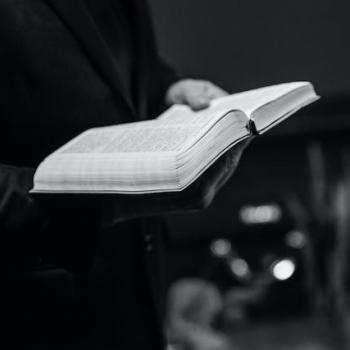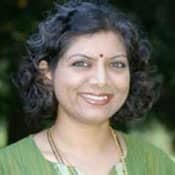I recently ran into a friend at the temple who teaches religious education classes to Hindu youth, and asked her if she would be able to participate in a women's interfaith symposium, organized by friends from the local Ahmaddiya mosque. The women invited several of us from the Troy-area Interfaith Group to discuss the moral and spiritual empowerment of women; so what could be better than a religious educator of youth to talk about the Hindu concept of dharma that inspires so many of us to seek social justice and spiritual fulfillment?
For the last decade, I have taken a seat at the table of inter-ethnic and inter-religious dialogue, and am constantly seeking the support of others from the Hindu community. But I find an inherent reluctance. It shouldn't be so hard, since we are basically an inclusive, pluralistic lot, with the belief that there are many paths to the Truth. But the exchange I had with this friend may explain why Hindus may find it hard to participate—and also why I believe there is an imperative to stay the course.
She asked, "Do you really think there is any point in this interfaith, since everyone believes their religion is the best?" I explained that we need to be present to have the opportunity to explain and change what is misunderstood and often deliberately misrepresented about our beliefs. She left, agreeing to look at her calendar and consider participating in the symposium.
While I encourage her and many others to attend interfaith activities and eventually take an active role, I often find myself faced with the question: What is the purpose of interfaith dialogue, when one or more of the parties involved has as a pillar of their faith that they must claim or proclaim their Truth as being the One and Only Truth? I agree with Aseem Shukla of the Board of Directors of the Hindu American Foundation, who recently commented on the posthumous baptism of Mahatma Gandhi: "I have no imperative to convince others to follow my path." I agree with Ramdas Lamb, professor at the University of Hawaii, who spoke on the good and bad of religion: "Religions contain value systems and a variety of tools that can help guide people on a path to righteous living, provided the tools are used properly and the values are put to practice in one's life in a positive way." I also agree with Diana Eck, Harvard University professor, who defines pluralism and provides talking points: "Pluralism is based on dialogue. The language of pluralism is that of dialogue and encounter, give and take, criticism and self-criticism. Dialogue means both speaking and listening, and that process reveals both common understandings and real differences. Dialogue does not mean everyone at the 'table' will agree with one another. Pluralism involves the commitment to being at the table—with one's commitments."
Sanatana Dharma, or as it is more commonly known, Hinduism, has a foundational belief in pluralism. The "Ekam Sat" statement in the Rig Veda in Hindu scriptures will enable the dialogue to transcend the exclusivity message that some belief systems proclaim. I was invited to attend a recent Faith-based Summit on Foster Care in Lansing, and I went, even though I knew I would be the only Hindu among many Christians. The goal of the summit was to raise awareness within the faith-based communities on the need for foster and adoptive parents in Michigan and to assist congregations in the development of foster care coalitions. The State, aka the Department of Human Services (DHS), can't provide a child much-needed mentoring, a place to call home, a forever family or "irrational love," as DHS Director Maura Corrigan, Faith Communities Coalition on Foster Care leader Rev. Kate Thoresen, and other inspiring speakers pointed out. What makes more sense than asking people of faith to care for the thousands of young people who are wards of the state?
For me, the daylong event was a way to reconnect with interfaith contacts, meet virtual acquaintances in person, and make new friends. I sat with three women from the foster/adoptive care ministry at Kensington Community Church—Giving Orphans HOPE (GO Hope). We discussed the various challenges of ethnic profiling, the importance of inclusion at a government-sponsored National Day of Prayer event, the distaste we feel about the "Abortion Debate" and of course, how our faith empowers us to do what is right.





